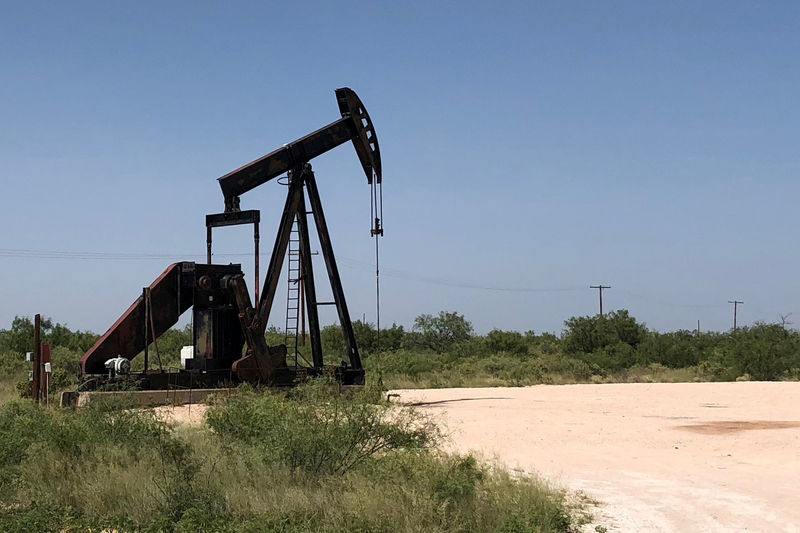By Florence Tan
SINGAPORE (Reuters) - Oil prices slipped on Monday as China's economic outlook remained weak even as manufacturing data improved as an ongoing trade war with the United States weighs on demand growth at the world's largest crude importer.
Brent crude (LCOc1) futures fell 20 cents to $61.71 a barrel by 0632 GMT while U.S. West Texas Intermediate (WTI) crude (CLc1) futures edged down 3 cents to $55.88 a barrel.
The official Purchasing Managers' Index (PMI) rose to 49.8 in September, slightly better than expected and advancing from 49.5 in August. But it remained below the 50-point mark that separates expansion from contraction on a monthly basis, data from the National Bureau of Statistics (NBS) showed.
The PMI data "remained in the contractionary territory for the 5th month in a row, indicating that economic fundamentals were still weak," Citi analysts said in a note.
"The (Chinese) government will certainly step up fiscal and monetary efforts to boost domestic demand, which we believe can help stabilize, probably not accelerate, economic growth."
China is the second biggest oil consumer in the world.
Brent is set to rise 2.1% in September, its first monthly gain since June, with prices lifted by an unprecedented attack on Saudi's oil facilities on Sept. 14 that reduced its production by half. WTI is set to rise 1.4% this month.
World's top oil exporter Saudi Arabia has restored capacity to 11.3 million barrels per day, sources told Reuters last week although Saudi Aramco has yet to confirm it is fully back online.
"Most of this is already priced in when the Saudis said they were going to do it (resume production) fast," said Avtar Sandu, a senior commodities manager at Phillip Futures in Singapore.
While Saudi Arabia is maintaining exports by using crude from inventories and spare production capacity, how much of it is actually restored could only be determined in the next few weeks, he added.
Saudi Arabia's crown prince warned in an interview broadcast on Sunday that oil prices could spike to "unimaginably high numbers" if the world does not come together to deter Iran, but said he would prefer a political solution to a military one.

This came a day after Yemen's Houthi movement said it had carried out a major attack near the border with the southern Saudi region of Najran and captured many troops and vehicles, but there was no immediate confirmation from Saudi authorities.